SS 2020 - Blockseminar – HS:
Global Challenges and the Future of the Anthropocene in Genre Literature
Professor: PD Dr. Karin Ikas
Description:
This seminar investigates the role literature plays in addressing the globalized challenges that grip today’s popular imagination and scientific debates in the so-called Anthropocene. The term, which roughly translates as age of mankind, means that in the current geological epoch humans have become the dominant global force shaping the earth. Ethically, this implies that humans are accountable for the presence and future of the globe whose current ‘woes’ are linked to humans’ individual and collective destructive interventions. Yet, what exactly are our responsibilities in a world where the boundaries between nature and culture are no longer clear? Which crises shape the current discussions and result in a fear of the future? What are the limitations of human interactions? Moreover, how do we imagine and visualize the challenges of the future in the present?
Literature gives us a rich reservoir of futures at hands and makes even forbidden or unavailable experiences come alive. In brief, literature can create (alternative) scenarios in the minds of the readers and stimulates the construction of possible worlds or different perspectives and images on and of the future in a dystopian, utopian, or even more realistic way. In this seminar, a key point of analysis involves the comparison of specific genres or novelistic forms (e.g. speculative fiction, fantasy, science fiction, etc.) as they appear in different Anglophone national cultures and literatures. Critics have highlighted the increasing popularity of ‘cli-fi’ (=climate fiction) as one evidence of genre literature rising to the occasion to address various complex yet pressing problems related to anthropogenic climate change. But critical attention so far looks primarily on cases from the US and the UK. Thus, more work remains to be done to determine how the ‘turn to genre’ appears in different national contexts. This work is all the more essential given that the worst effects of global problems like climate change, pandemics and precarity have been distributed unequally between the global north and the global south.
Applying a comparative methodology and an interdisciplinary approach, this course engages in innovative research as it aims to make a substantial contribution to close this void.
Participants are strongly encouraged to add their voices to the ongoing debates and to contribute different media and literary text samples that are relevant to the topics being discussed and appropriate in light of academic and educational purposes.
Note:
The relevant texts will either be available at the local copy shop Script & Copy or provided online via Moodle. Information about further study material and the class structure will be provided in the Introductory Session (=Session 1) on Sat, 2 May 2020 (online, via Moodle etc.). More information soon.
The other block sessions take
place as followed (if face-to-face or online/digital/e-learning depends on the Corono-crisis development and will be announced in due course):
Block Session II: Saturday,
30 May 2020 (10-16 o’clock)
Block Session III: Saturday, 13 June 2020 (10-16 o’clock)
- Trainer/in: Prof. Dr. Karin Ikas
